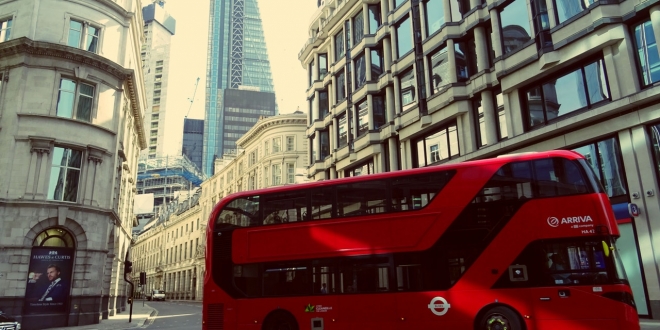Unite and RMT have both issued statements responding to the government’s new £3 billion national bus strategy to make buses more frequent, cheaper, greener and easier to use.
Unite has today warned that the government’s new bus strategy does not go far enough to reverse more than 10 years of service cuts that have left communities increasingly isolated. The union also said the new strategy could also unleash more employment instability across the sector.
The government today unveiled their £3 billion ‘Bus Back Better’ strategy, which aims to make buses more frequent, cheaper, greener and easier to use as part of it’s wider ‘levelling up’ agenda.
The changes outlined in the new strategy include:
- simpler bus fares with daily price caps, so passengers can use the bus as many times a day as they need without facing mounting costs
- increased services in the evenings and at the weekends
- integrated services and ticketing across all transport modes, so people can easily move from bus to train
- all buses to accept contactless payments
Hundreds of miles of new bus lanes will also be built to make bus journeys quicker and more reliable and encourage people to drive less – helping to reduce pollution and operating costs.
Prime Minister Boris Johnson said today:
“Buses are lifelines and liberators, connecting people to jobs they couldn’t otherwise take, driving pensioners and young people to see their friends, sustaining town centres and protecting the environment.
“As we build back from the pandemic, better buses will be one of our first acts of levelling up.
“Just as they did in London, our reforms will make buses the transport of choice, reducing the number of car journeys and improving quality of life for millions.”
However, Unite said the solutions put forward today by the government may not significantly improve services. While welcoming the plans to reduce ticket prices, allow for contactless payments and move towards greener buses, Unite also criticised the government for failing to introduce minimum standards for bus drivers’ pay and conditions.
Unite national officer for passenger transport Bobby Morton said: “Travel by bus is still the most popular mode of transport in the country, connecting communities, helping people get to shops, school and work. So it is extremely important that the services are stable, affordable and well-run. This strategy is a missed opportunity to achieve that goal.
“The National Bus Strategy is an admission that the 1980s deregulation of the bus service has been a complete failure.
“Fares have increased, services have reduced, private operators cherry-pick the most profitable routes and social exclusion has mushroomed as connectivity has been cut.
“The National Bus Strategy attempts to address these issues but specifically excludes the best solution which would be to allow local authorities to work together to operate their own services.
“While the franchising and enhanced partnership plans should help to reduce some of the worst excesses of the privatised bus system such proposals must be compulsory or it will result in improvements in some areas while others are left behind.”
Britain’s largest specialist transport union, RMT, joined Unite in welcoming the government’s acceptance that buses play a key role in connecting communities and meeting climate change targets. However, the union criticised the plans for lacking ambition and called for “guaranteed ring-fenced national funding for all local authorities to deliver the bus services their communities require”.
RMT general secretary Mick Cash said: “RMT has long called for the creation of a National Bus Strategy to address the massive decline in the bus industry since it was deregulated in the 1980s and we welcome the government’s acceptance that this is necessary for local bus services to play a key role in connecting communities and meeting our climate change targets.
“However, the strategy appears to lack ambition for addressing the challenges of getting people back onto sustainable public transport following the Covid-19 pandemic. Just days ago, a new National Audit Report warned that cash strapped local authorities may be forced to cut support for local bus services because of funding pressures while one of the major bus companies Go–Ahead was boasting about profits it had made during the pandemic.
“It is vital that the Covid-19 pandemic doesn’t push more people into cars, this would increase carbon emissions and worsen public health, but RMT fears the profit driven commercial bus operators are already looking to respond to the pandemic with service cuts.
“The only way to deliver an effective, integrated, accessible and affordable local bus network is for the government to provide guaranteed ring-fenced national funding for all local authorities to deliver the bus services their communities require via a publicly owned municipal bus operators which recognises and protects the vital role of our essential bus workers who performed so heroically during the pandemic.”
Read more:
- Unite advises bus drivers in London not to drive over-crowded buses amid Covid transmission fears
- Unite calls on government to take action to prevent overcrowding of buses
- “Missed opportunity” – Unions respond to Rishi Sunak’s Budget






Facebook Comments